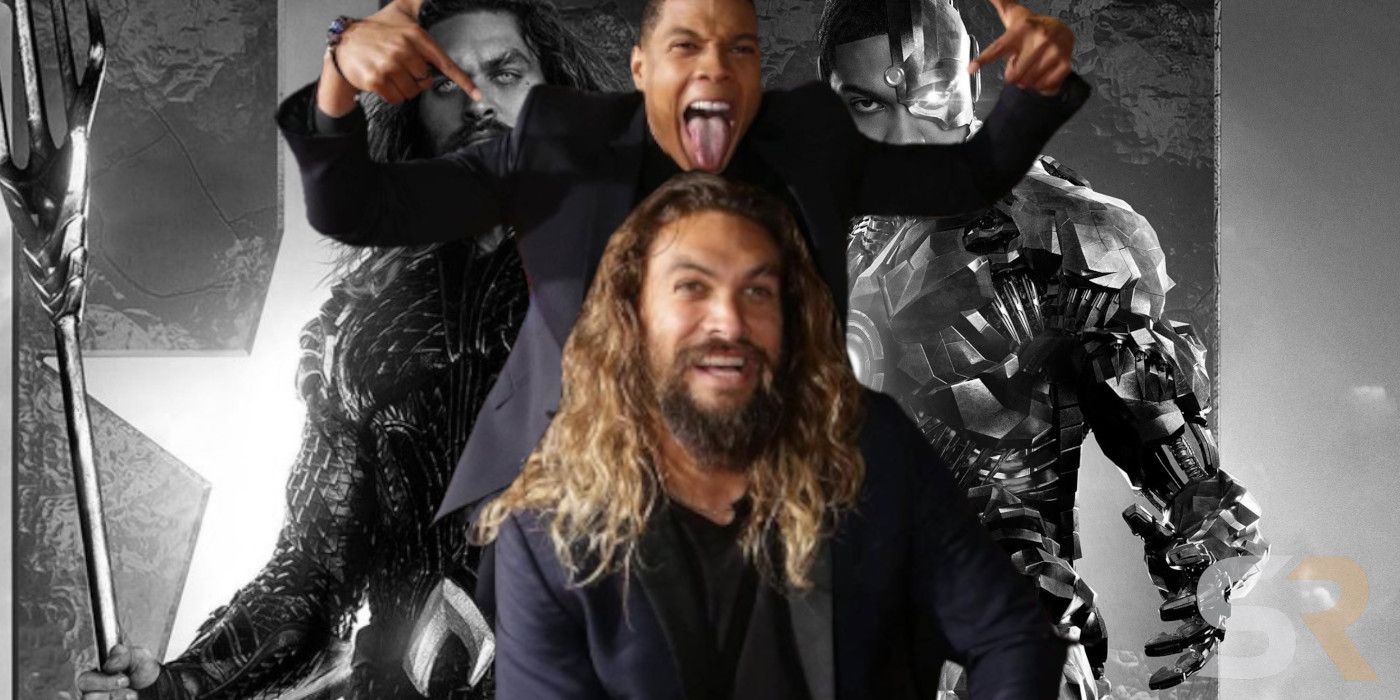
Jason Momoa's No-Gaming Philosophy: A Trendsetter in Parenting?
In a world where screens dominate our lives, actor Jason Momoa is taking a bold stand by keeping his children away from video games and smartphones. Known for his role in the upcoming A Minecraft Movie, Momoa's parenting philosophy is drawing attention and sparking heated debates among parents and gamers alike. “We don’t have a TV. My son doesn’t have a phone. He’s 16 and doesn’t have a phone,” he stated during a recent interview. Instead of gaming, Momoa encourages outdoor activities and creativity, emphasizing, “I just want them to use their creativity in a different way. So, we do other things” source.

Breaking Away from the Norm
Momoa’s approach to parenting challenges the status quo. With the increasing prevalence of technology in children’s lives, his philosophy stands out as an alternative to the norm. While some parents may view video games as a source of entertainment, Momoa perceives them as distractions that could stifle creativity.
Reflecting on his own childhood, he shared, “My mother, when I was growing up, wouldn’t let me play video games. She was like, ‘Get outside, climb a tree, go skateboard’.” This nostalgia for outdoor play resonates with many parents who grew up in a less digitally-immersed era.
The Benefits of Outdoor Activities
Research suggests that outdoor activities can have numerous benefits for children, including improved physical health, social skills, and mental well-being. The American Academy of Pediatrics emphasizes that engagement in outdoor play is essential for developing a child's cognitive and emotional skills. As Momoa positions himself as an advocate for this lifestyle, he is encouraging other parents to consider the value of time spent outside.
The Debate Over Screen Time
However, the conversation surrounding screen time is complex. While Momoa's stance advocates for a screen-free childhood, many experts argue that video games are not inherently harmful and can even be beneficial. The Entertainment Software Association reports that over 70% of American households engage in gaming, highlighting its ubiquity and appeal. Video games can foster critical thinking, teamwork, and problem-solving skills.
An ongoing debate forms as parents grapple with balancing screen time with other activities. While some parents agree with Momoa's outlook, others argue that video games can serve as a medium for creativity and social interaction, particularly among peers.
A New Parenting Trend?
Momoa’s unique perspective raises the question: Could there be a shift in parenting trends? As awareness of mental health and childhood development increases, parents are beginning to reflect on how technology impacts their children. The influence of celebrities like Momoa may encourage a movement toward more traditional parenting methods, advocating less screen time and more outdoor activities.
While some parents see the potential for establishing strict no-gaming policies, others may find a middle ground, allowing for limited gaming while still promoting outdoor play. The key takeaway here is not necessarily to eliminate video games but to encourage balance.
Finding Common Ground
Many parents are starting to recognize that technology is a prominent part of their children's lives. Instead of completely banning video games, some are adopting a more integrated approach. This includes setting time limits, encouraging educational games, or engaging in gaming activities together with their children.
The issue is not whether video games are good or bad, but how they fit into a well-rounded childhood. By being informed and participating in the gaming experience, parents can help foster healthy relationships with technology.
Conclusion
As discussions around parenting philosophies evolve, Jason Momoa's no-gaming stance is a refreshing take that invites parents to reassess their children's screen time. His emphasis on creativity, outdoor play, and traditional values resonates with many seeking a healthier balance in the digital age.
Ultimately, the impact of Momoa's philosophy on parenting trends remains to be seen. With varying perspectives on the role of technology in childhood, it is crucial for parents to engage in open conversations and find solutions that work best for their families. The conversation is far from over, and as society navigates the intersection of technology and childhood, only time will tell if Momoa's approach becomes a widespread trend.
In the ever-evolving landscape of parenting, Momoa's philosophy serves as a reminder to prioritize creativity and real-world experiences. As parents continue to adapt, fostering a healthy relationship with technology will remain an important conversation for generations to come.